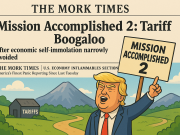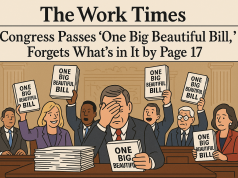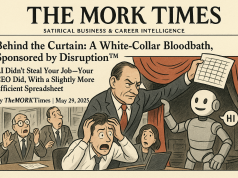As we navigate through an era of unprecedented change in our work patterns, the definition of success has evolved. For decades, the archetype of a successful professional was characterized by long hours, constant availability, and a linear career trajectory. Today, with the rise of remote work, flexible hours, and a greater emphasis on work-life balance, these old benchmarks are being questioned. The ‘hustle culture’ is under scrutiny, and mental health is at the forefront of the conversation.
The concept of success has always been a moving target, but perhaps never more so than now. In the past, climbing the corporate ladder as quickly as possible was seen as the ultimate goal. Sacrificing personal time for work was not only expected but also admired. However, this one-dimensional view of success has come under review as workers across the globe are demanding more from their employers – and from themselves.
For me personally, and within the organization I advocate for, success is no longer exclusively defined by promotions or salary increments. It’s about fulfillment, balance, and the ability to pursue a career without sacrificing personal values and well-being. Flexibility has become one of the most sought-after aspects of modern employment. The opportunity to work remotely, or to choose work hours that fit around life’s other commitments, is no longer a perk but a fundamental expectation.
Moreover, the traditional model of working solely within the office walls from nine to five is being challenged. We are witnessing the rise of digital nomadism, where professionals can work from anywhere in the world, and the embracement of asynchronous communication, allowing for varied work schedules that complement individual productivity patterns rather than hampering them.
New indicators of success are emerging. Employee engagement, for instance, is an essential measure of workplace satisfaction and a predictor of productivity. Wellness programs and mental health initiatives are becoming standard as companies recognize that a healthy worker is a more effective one. Success in the modern workplace is also measured by the degree to which employees can learn, grow, and contribute meaningfully to their roles.
In this great reassessment of work, companies that adapt to these changing definitions of success are more likely to attract and retain top talent. As individuals and organizations, it’s time to embrace this new paradigm and redefine what it means to be successful in the workplace. A balance between personal well-being and professional achievement is not just possible; it’s the future.
We must ask ourselves: Are we measuring success by how much we work, or by how well we work and live? The answer lies in the subtle yet transformative shift towards meaningful work-life integration that supports our overall happiness and contentment.




























